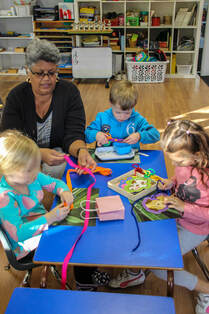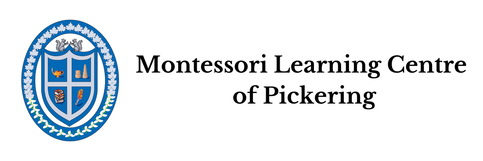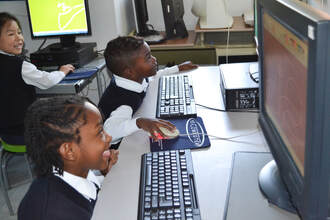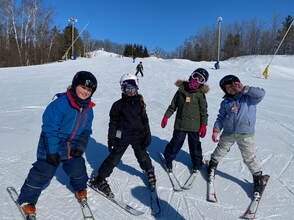Why Choose Montessori?

In 1907 Dr Maria Montessori, Italy's first female physician and graduate, introduced a revolutionary approach towards the way children are educated. Through years of observation and scientific study, she created a system that looked at the development of the entire child. She believed that all children possess an intellectual and creative potential, an internal desire to learn and the ability to direct themselves in this learning. Montessori will offer you, without question, the most scientifically prepared academic environment you will encounter. Balancing this, however, is a community environment filled with heart. The children enjoy an interesting, interactive setting where they will be challenged and stimulated, but also share as much physical comfort and support as needed.
In classrooms rich with Montessori materials, children are grouped together in three-year age spans, where they have the ability to learn the role of mentee and then mentor. Montessori is an individualized approach to education that helps each child reach full potential in all areas of life. It is student-centred and encourages creativity and curiosity, which leads children to ask questions, explore, investigate and think for themselves. Montessori students develop creativity and confidence, critical thinking, problem solving skills and a positive, collaborative attitude - all skills that provide a solid foundation for later years.
The Montessori Method functions without the confines of a traditionally structured classroom. The child will often find children older, younger and the same age as himself, providing for further development of freedom and responsibility. The Montessori Method allows each child to process individually according to their ability. They are not bound by chronological age but can move through the program at their own pace, advancing in areas of strength but continuing reinforcement in others.
While the Ontario School Curriculum is on hand at all times, the philosophy of children working at their "ability level" as opposed to "age level" is predominant throughout MLCP. Children are placed within each classroom at their level of ability and for each subject, material is presented, as appropriate, for advancement or reinforcement. Students, then, could be working at different levels in different subjects.
Montessori - as an alternative method of education is able to offer an individualized learning environment with a lower staff/student ratio. Generally, students are producing at a commendable level throughout their academic years, especially those with a long term Montessori history.
Along with academic expectations, students are encouraged to develop a good moral base, established study habits and both organizational and production levels of a high standard. Students ages three and up engage in the study of language, math and an all encompassing cultural programme. Cultural presentations include studies of natural sciences, geography, history, and art with physical science and chemistry introduced at the older levels. All students receive daily French classes and weekly Music and Physical Education classes. Apart from the basic curriculum, the Elementary students, Grade one to eight, are introduced to weekly Computer, Art, Civics, Home Economics and library visits. Elementary students are tested bi-annually to gauge areas of strength.
In classrooms rich with Montessori materials, children are grouped together in three-year age spans, where they have the ability to learn the role of mentee and then mentor. Montessori is an individualized approach to education that helps each child reach full potential in all areas of life. It is student-centred and encourages creativity and curiosity, which leads children to ask questions, explore, investigate and think for themselves. Montessori students develop creativity and confidence, critical thinking, problem solving skills and a positive, collaborative attitude - all skills that provide a solid foundation for later years.
The Montessori Method functions without the confines of a traditionally structured classroom. The child will often find children older, younger and the same age as himself, providing for further development of freedom and responsibility. The Montessori Method allows each child to process individually according to their ability. They are not bound by chronological age but can move through the program at their own pace, advancing in areas of strength but continuing reinforcement in others.
While the Ontario School Curriculum is on hand at all times, the philosophy of children working at their "ability level" as opposed to "age level" is predominant throughout MLCP. Children are placed within each classroom at their level of ability and for each subject, material is presented, as appropriate, for advancement or reinforcement. Students, then, could be working at different levels in different subjects.
Montessori - as an alternative method of education is able to offer an individualized learning environment with a lower staff/student ratio. Generally, students are producing at a commendable level throughout their academic years, especially those with a long term Montessori history.
Along with academic expectations, students are encouraged to develop a good moral base, established study habits and both organizational and production levels of a high standard. Students ages three and up engage in the study of language, math and an all encompassing cultural programme. Cultural presentations include studies of natural sciences, geography, history, and art with physical science and chemistry introduced at the older levels. All students receive daily French classes and weekly Music and Physical Education classes. Apart from the basic curriculum, the Elementary students, Grade one to eight, are introduced to weekly Computer, Art, Civics, Home Economics and library visits. Elementary students are tested bi-annually to gauge areas of strength.


